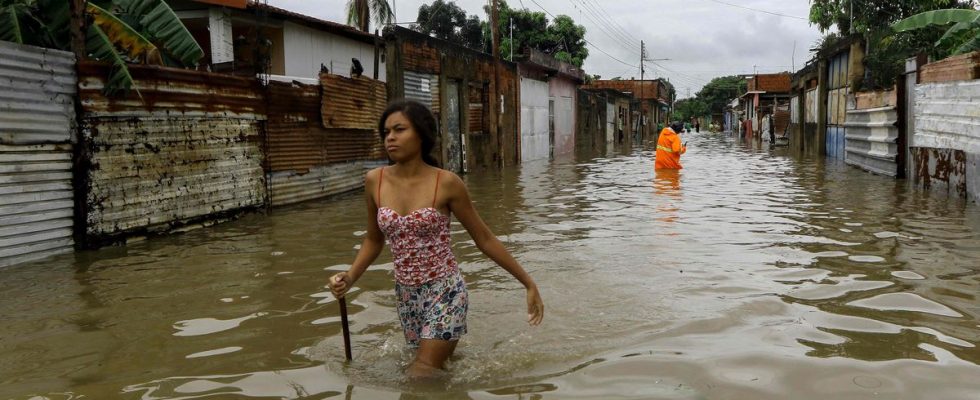Massive suffering is to be expected in developing countries. And limiting global warming to 1.5°C – an increasingly unlikely scenario – will not be enough to avoid them. This is the warning of a consortium of 50 researchers, who nevertheless recognize that this limitation would make it possible to avoid runaway climate change.
Some 200 million people in impoverished regions will be exposed to unbearable heat and half a billion will face the destructive ravages of rising waters, even if the world meets the +1.5C cap from the end of the 19th century set by the Paris agreement, they indicated in a study published in Nature.
Warming of up to 1°C
This scenario is now seen as optimistic, as greenhouse gas emissions remain at record levels and IPCC (UN) scientists estimate that current policies are instead leading to a 2.7°C warming of here at the end of the century. The Earth’s average surface temperature has already risen by nearly 1.2°C since pre-industrial times, which the study authors say is already too high.
If we want to prevent large parts of humanity from being exposed to “significant damage (…), the right limit must be set at 1°C or below”, and the atmospheric concentration of CO2 – currently at 420 parts per million (ppm) – should be reduced to 350 ppm, say scientists. “We are in the Anthropocene, endangering the stability and resilience of the entire planet,” said Johan Rockström, lead author of the study, referring to a new geological epoch marked by the imprint of humans. on the planet.
Six “planetary boundaries” already crossed
Johan Rockström is one of the initiators of the concept of “planetary boundaries”, red lines not to be crossed. In 2009, he and his colleagues identified nine such limits and estimated that three had already been crossed: greenhouse gases warming the planet, accelerating species extinctions, and excess nitrogen and of phosphorus in the environment (mainly from fertilizers).
We have since overcome three more: deforestation, overuse of fresh water and the ubiquity of synthetic chemicals, including plastics. Outdoor particulate pollution, which shortens more than four million lives each year, could be added to the list this year, and ocean acidification may not be far behind.
A “fair global transformation”
“Nothing less than a just global transformation (…) is necessary to ensure human well-being”, conclude the authors of the study, supported by the Global Commons Alliance, a coalition of more than 70 research centers and policy, including the World Economic Forum, The Nature Conservancy and Future Earth.
“These transformations must be systemic in the sectors of energy, food, urbanization, etc. », attacking all the economic, technological and political drivers of global warming to guarantee access to resources for the poorest.

